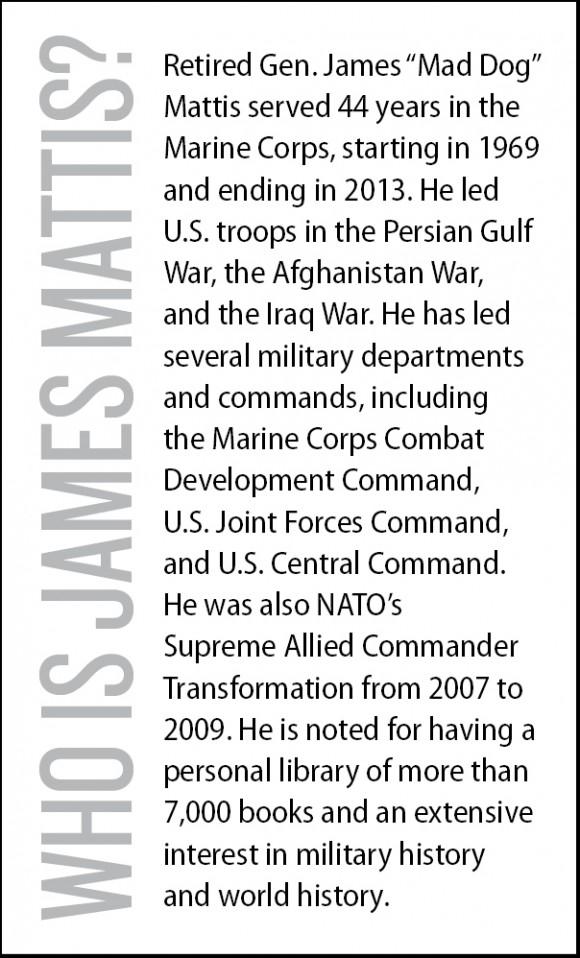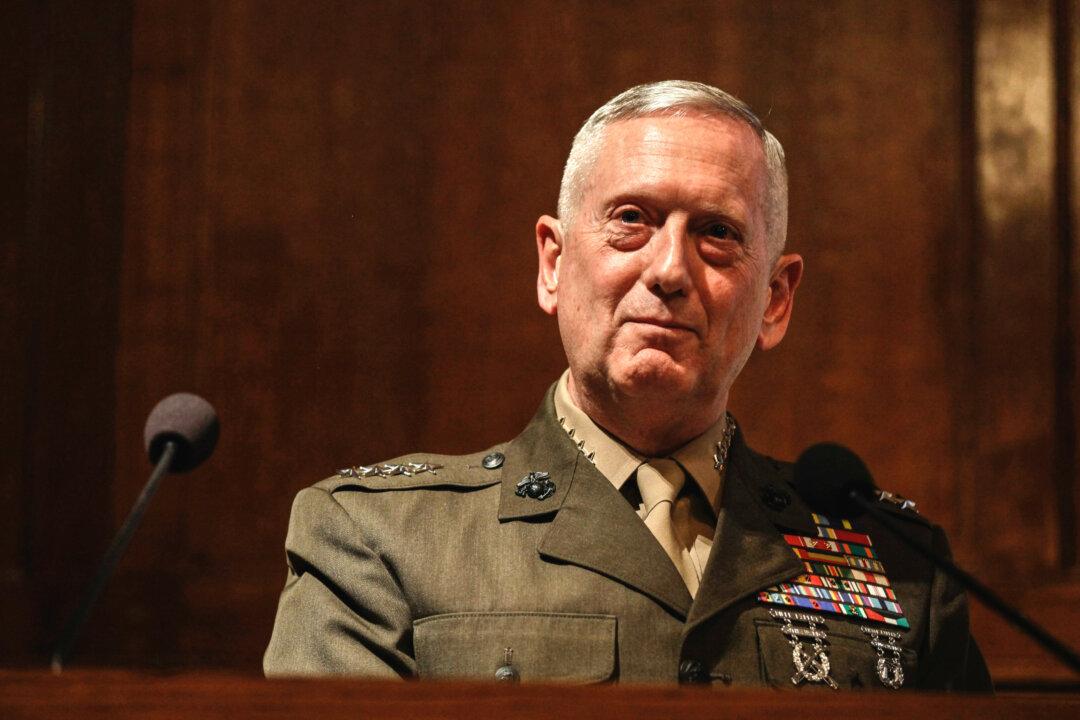The culture of the Pentagon may see a shift under the leadership of James “Mad Dog” Mattis, the four-star general recently named by President-elect Donald Trump as the next secretary of defense.
Long-time army combat veteran and former intelligence official Mike Furlong saw firsthand how Mattis changed the culture at U.S. Central Command (CENTCOM) in 2010.
Mattis made CENTCOM less political, said Furlong, and he lent more support to warfighters.
“With Mattis as secretary of defense, you will have a big defender for the troops at the spear-end of the fight,” said Furlong, who currently works for news website OpsLens.
It was a rocky year for the U.S. military in 2010. Gen. Stanley McChrystal retired as Afghanistan commander after criticizing the Obama administration in a Rolling Stone article. He was replaced by now-retired Gen. David Petraeus, and Mattis was in turn chosen to replace Petraeus at CENTCOM.






